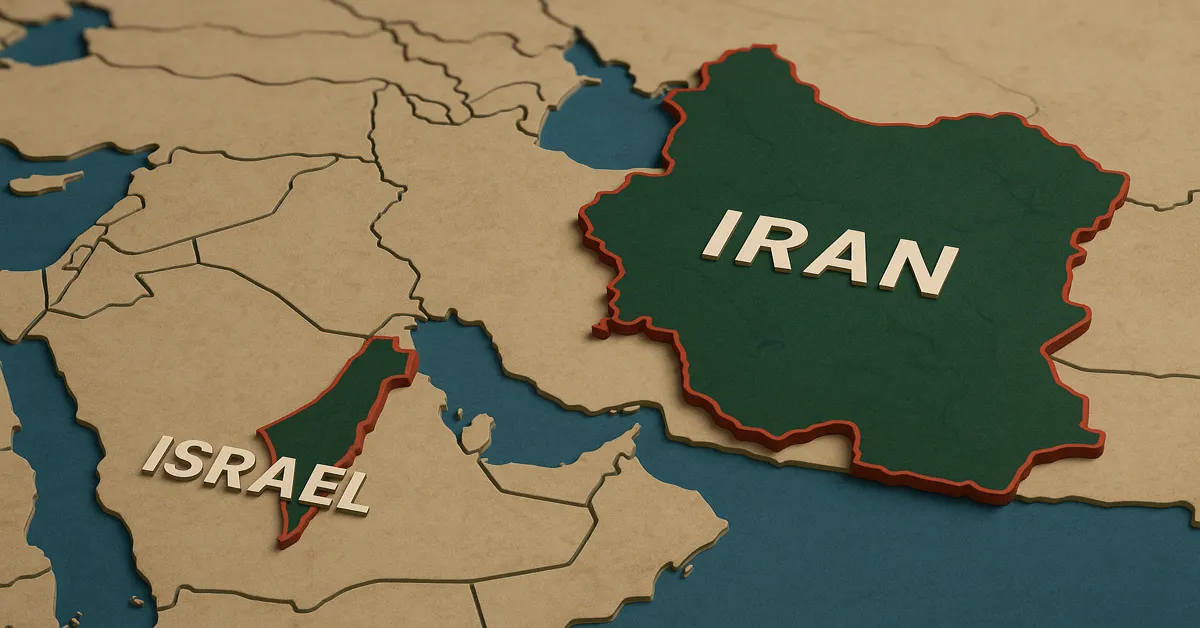By International Desk | Middle East & Diplomacy | April 2025
TEL AVIV — In the early morning hours of a spring Friday, faint echoes of distant diplomacy, clandestine operations, and cross-border saber-rattling drifted into the public consciousness, reigniting debate over one of the Middle East’s most sensitive flashpoints: the enduring possibility of an Israeli attack Iran.
Though the physical border between Israel and Iran is separated by hundreds of miles and intervening nations, the two countries remain locked in what analysts increasingly describe as a shadow war, characterized by cyber sabotage, proxy battles, targeted strikes, and nuclear brinkmanship. In recent months, however, the rhetoric and posturing on both sides have entered a more combustible phase, prompting concern among global observers that the long-discussed but never-executed military confrontation may inch closer to reality – Israeli attack Iran.
This article provides a full examination of the evolving Israeli-Iranian standoff: the history behind it, the strategic triggers, regional implications, and the logistical contours of a hypothetical Israeli military operation targeting Iranian nuclear or military facilities.
Historical Roots: A Decade-Long Deterrence Dynamic
While tensions between Israel and Iran stretch back decades, the nuclear dimension of their rivalry surged into prominence in the early 2000s, following revelations of Iran’s clandestine uranium enrichment programs. Israel has repeatedly declared that a nuclear-armed Iran is an existential threat—a “red line” which it will never allow to be crossed.
Iran, for its part, insists its nuclear ambitions are peaceful, yet maintains a network of underground enrichment facilities, ballistic missile programs, and regional alliances with militant groups that Israel considers proxies—most notably Hezbollah in Lebanon and Islamic Jihad in Gaza.
The Israeli approach has long focused on strategic ambiguity and preemptive deterrence. Known for its history of surgical airstrikes—from Iraq’s Osirak reactor in 1981 to Syria’s Al-Kibar facility in 2007—Israel is seen by military analysts as one of the few nations both willing and capable of executing preventive military action to block nuclear development in enemy states.
What Would Trigger an Israeli Strike on Iran?
According to senior defense analysts and former Israeli intelligence officials, a military operation would likely be greenlit under a narrow set of conditions:
- Concrete Intelligence: Confirmation that Iran has begun enriching uranium to weapons-grade levels or is preparing to weaponize it.
- Failure of Diplomacy: A collapse or stalling of international negotiations or inspections.
- Window of Opportunity: An intelligence assessment indicating that waiting would allow Iran to harden or conceal its capabilities beyond reach.
- Domestic and Political Calculations: A desire by Israeli leadership to appear strong on national security, particularly during political instability or elections.
It’s this convergence—where intelligence, geopolitics, and domestic narratives overlap—that makes speculation around an Israeli attack both persistent and unpredictable – Israeli attack Iran.
Read on itsreleased.com: Wells Fargo Bank Settlement DetailsLogistics and Military Considerations
An Israeli strike on Iran would be a complex, multi-theater operation, requiring far more logistical coordination than the nation’s previous surgical attacks.
Key Considerations:
| Component | Detail |
|---|---|
| Distance | Approx. 1,500 km from Israel to Iran’s core nuclear sites |
| Target Complexity | Deeply buried facilities like Fordow and Natanz |
| Assets Required | F-35I stealth fighters, aerial refueling tankers, drones |
| Cyber Warfare | Disruption of Iranian defense systems via electronic attack |
| Covert Ops | Possible sabotage efforts via operatives or insider assets |
Experts agree that no single strike would be sufficient. Rather, Israel would need to mount a sustained campaign, potentially involving multiple phases and international airspace coordination.
Potential Iranian Response Scenarios
Iran’s response would be multifaceted and potentially regional in scale. Scenarios range from direct missile retaliation against Israeli cities to proxy activation along Israel’s borders.
Possible Iranian Counteractions:
- Missile launches from Iranian soil or allied forces in Iraq and Syria
- Hezbollah escalation on Israel’s northern border
- Houthi drone attacks via Yemen
- Cyber retaliation against Israeli critical infrastructure
- Disruption of Gulf shipping lanes, escalating oil market volatility
According to Middle East security scholars, any Israeli military action risks igniting a broader regional war, even if initially limited in scope.
U.S. and Global Response
Though Israel often acts independently in its military operations, an attack on Iran would thrust the United States—its closest ally—into a precarious position.
Washington’s Options:
- Supportive: Offer refueling, intelligence, and defense interceptors if Israel faces retaliation.
- Restrained: Condemn the strike while diplomatically engaging Iran to de-escalate.
- Critical: Denounce the attack, fearing destabilization or impact on oil markets.
The Biden administration and its successors have walked a tightrope between preventing Iran’s nuclearization and avoiding another Middle Eastern war. In private, U.S. officials reportedly urge Israel to exhaust diplomatic and covert options before resorting to airstrikes.
The European Union, Russia, and China, each with different stakes in Iran’s energy and trade infrastructure, would likely issue calls for restraint while quietly adjusting their own regional calculations.
Public Sentiment: Divided Perception in Israel and Iran
While government and defense elites in both nations speak in the language of security imperatives and red lines, the broader public often views the issue through a different lens.
In Israel:
Public opinion on attacking Iran is deeply divided. Surveys indicate that while many Israelis believe Iran poses a serious threat, fewer support a unilateral strike without U.S. backing.
There is also fatigue. After two decades of sporadic wars and near-constant security alerts, many Israelis are wary of igniting another prolonged confrontation – Israeli attack Iran.
In Iran:
National pride and resistance to foreign aggression remain high. Yet among urban and reform-minded populations, there’s growing disillusionment with government priorities, especially amid economic hardship. A foreign attack could unite factions internally—or deepen discontent if casualties rise.
Cyber Frontlines: The Quiet War Already Happening
While no missiles have been launched, the cyber battlefield between Israel and Iran is already active.
From the Stuxnet virus, which disabled Iranian centrifuges over a decade ago, to more recent cyberattacks on Israeli water systems and Iranian fuel infrastructure, both sides have engaged in digital warfare that has occasionally spilled into public view.
Cyber tools serve both as force multipliers and as deniable first strikes, allowing each side to probe, retaliate, and disrupt without direct attribution. In any full-scale escalation, these tools would likely accompany or even precede physical airstrikes.
Diplomatic Channels: Backdoor Negotiations and Global Mediation
Though official relations are nonexistent, Israel and Iran have indirectly communicated through backchannels involving neutral nations such as Oman, Switzerland, and more recently, Qatar.
These secret dialogues—focused on de-escalation, prisoner exchanges, or warning messages—underscore the paradox of modern warfare: even hostile nations often maintain communication to prevent unintended war.
The United Nations, despite its limited enforcement power, remains a platform where tensions manifest in high-level Security Council debates. UN officials have repeatedly urged both nations to exercise “maximum restraint.”
Economic Consequences of Escalation
A military confrontation would send global oil prices soaring, disrupt trade routes, and rattle international markets already sensitive to geopolitical uncertainty.
Iran, with its strategic proximity to the Strait of Hormuz, could threaten 20% of the world’s oil flow. Meanwhile, Israel’s tech economy could suffer from cyberattacks, disrupted exports, and regional insecurity.
Market Risks:
- Oil prices spiking above $120/barrel
- Increased freight insurance premiums across the Middle East
- Disruption in semiconductor and defense manufacturing
- Investor flight from regional assets
Economists suggest that even a limited Israeli strike could trigger global ripple effects, particularly in energy-dependent regions like Europe and Asia.
Regional Allies and the New Arab-Israeli Landscape
The Abraham Accords, signed in 2020, have reshaped Israel’s relations with Gulf nations like the UAE and Bahrain. Yet the prospect of an Israeli strike on Iran puts those new alliances to the test.
Saudi Arabia, long a quiet rival of Iran, remains publicly cautious but privately aligned with containment efforts. A military strike, however, risks inflaming domestic opposition in Arab capitals where publics remain sympathetic to Palestinian and anti-Israel narratives.
Turkey, Egypt, and Jordan—each balancing unique diplomatic threads—would likely call for restraint while closely monitoring domestic fallout.
The Intelligence Race: Who Knows What, and When
At the heart of Israel’s deterrence strategy is intelligence superiority. The Mossad has conducted high-profile assassinations, extractions, and cyber intrusions to stall Iran’s nuclear timeline.
But intelligence is a double-edged sword. Misreading cues or overestimating progress could provoke unnecessary escalation. Conversely, underestimating Iran’s concealment capacity could mean waiting too long.
The challenge, say intelligence veterans, is discerning capability from intent—knowing whether Iran is simply expanding its leverage or actively preparing a weapon.
Conclusion: The Fragility of Calculated Risks
The specter of an Israeli attack on Iran hovers not as a certainty, but as a contingency rooted in a fragile architecture of calculation, deterrence, and perception.
Both nations have shown discipline, pragmatism, and an understanding of consequence. But history reminds us that wars often erupt not from intent, but from miscalculation.
As the global community watches this dangerous balancing act unfold, one truth remains clear: The cost of a military conflagration—human, economic, and geopolitical—would reverberate far beyond Tel Aviv and Tehran.
For in-depth regional updates, intelligence analysis, and Middle East & diplomacy, continue following our International Desk coverage.











